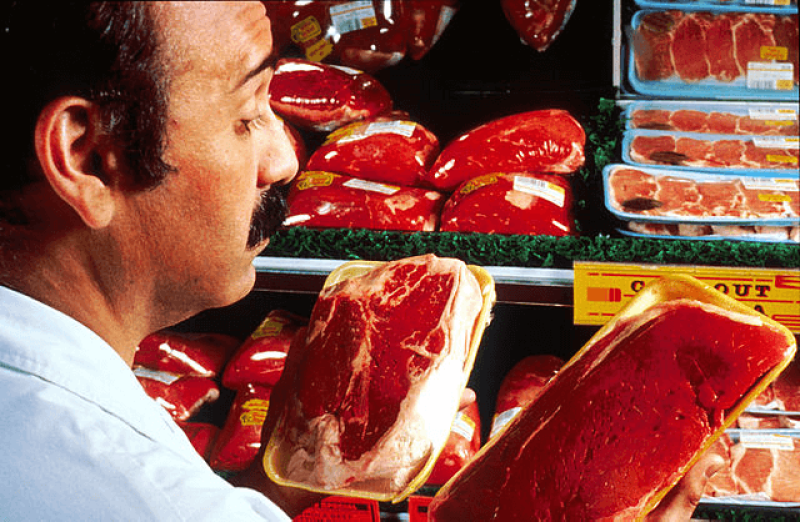As grocery store prices rise, consumers open to experimentation opt for animal meat over more expensive plant-based versions
As grocery store prices rise, consumers open to experimentation opt for animal meat over more expensive plant-based versions


In a survey of more than 1,200 US adults, Purdue University found that consumers largely preferred beef from cattle over alternatives for taste, appearance, freshness, price, convenience, and several other factors.
A majority of consumers (71%) said beef from cattle is much or somewhat better in taste, while only 17% said that beef and beef alternatives tasted about the same, and 12% said the alternatives were better. Similarly, 57% of consumers said beef is much or somewhat better in terms of freshness, while 27% said it was about the same for the two, and 16% said meat alternatives were much or somewhat fresher.
While animal-based meats beat meat alternatives in almost all the descriptors Purdue University tracked, 42% of consumers said beef alternatives were somewhat or much better from an animal welfare perspective, with 38% of people saying beef is much or somewhat better on animal welfare and 19% said both were similar.
“The biggest takeaway from our alternative meat questions is that consumers still overwhelmingly prefer beef from cattle across a wide range of product attributes. This result reinforces the fact that plant-based meat remains a niche product,” Joseph Balagtas, the CFDAS director and a professor of agricultural economics, shared in a press release.
This is an excerpt. Read the original post here

 | Videos | More... |

Video: Nuclear energy will destroy us? Global warming is an existential threat? Chemicals are massacring bees? Donate to the Green Industrial Complex!
 | Bees & Pollinators | More... |

GLP podcast: Science journalism is a mess. Here’s how to fix it

Mosquito massacre: Can we safely tackle malaria with a CRISPR gene drive?

Are we facing an ‘Insect Apocalypse’ caused by ‘intensive, industrial’ farming and agricultural chemicals? The media say yes; Science says ‘no’
 | Infographics | More... |

Infographic: Global regulatory and health research agencies on whether glyphosate causes cancer
 | GMO FAQs | More... |

Why is there controversy over GMO foods but not GMO drugs?

How are GMOs labeled around the world?

How does genetic engineering differ from conventional breeding?
 | GLP Profiles | More... |

Alex Jones: Right-wing conspiracy theorist stokes fear of GMOs, pesticides to sell ‘health supplements’




 Viewpoint — Fact checking MAHA mythmakers: How wellness influencers and RFK, Jr. undermine American science and health
Viewpoint — Fact checking MAHA mythmakers: How wellness influencers and RFK, Jr. undermine American science and health Viewpoint: Video — Big Solar is gobbling up productive agricultural land and hurting farmers yet providing little energy or sustainabilty gains
Viewpoint: Video — Big Solar is gobbling up productive agricultural land and hurting farmers yet providing little energy or sustainabilty gains Fighting deforestation with CO2: Biotechnology breakthrough creates sustainable palm oil alternative for cosmetics
Fighting deforestation with CO2: Biotechnology breakthrough creates sustainable palm oil alternative for cosmetics Trust issues: What happens when therapists use ChatGPT?
Trust issues: What happens when therapists use ChatGPT? California, Washington, Oregon forge immunization alliance to safeguard vaccine access against federal undermining
California, Washington, Oregon forge immunization alliance to safeguard vaccine access against federal undermining 30-year-old tomato line shows genetic resistance to devastating virus
30-year-old tomato line shows genetic resistance to devastating virus The free-range chicken dilemma: Better for birds, but with substantial costs
The free-range chicken dilemma: Better for birds, but with substantial costs ‘You have to treat the brain first’: Rethinking chronic pain with Sanjay Gupta
‘You have to treat the brain first’: Rethinking chronic pain with Sanjay Gupta
